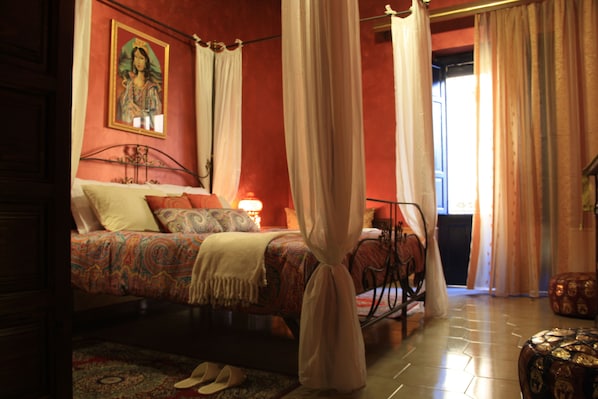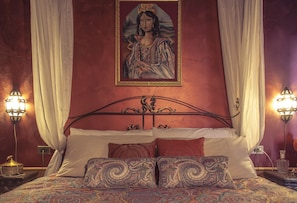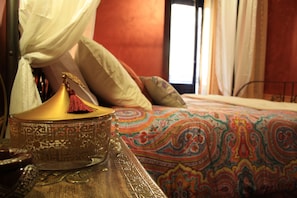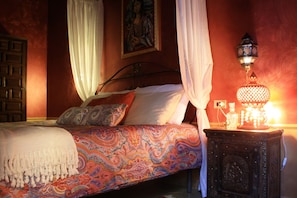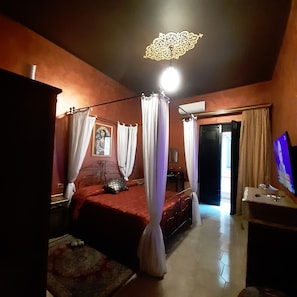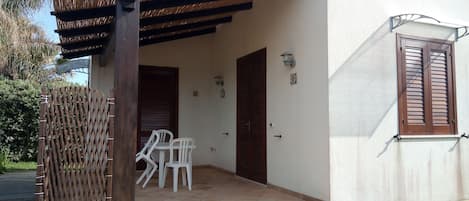Mirabilia Arab House is located in the heart of the Kasbah of Mazara del Vallo. The Arabic-style apartment consists of 4 rooms and 2 bathrooms: two bedrooms, a kitchen, a lounge, two bathrooms. Uniquely decorated, the rooms boast two large flat-screen TVs with Internet access, a kitchen and a private bathroom with free toiletries and a hairdryer, offering free Wi-Fi. The blue room is adorned with Arabic decorations, has the characteristic of being facing Mecca and embellished with Arabic-style depictions and rugs, an ideal place for moments of relaxation. The bedroom, with its refined furniture and colors, envelops you in an elegant environment reminiscent of the nights of the Orient. The kitchen is equipped with everything you need. In the apartment there is a safe. This house, located in the historic center, is within walking distance of numerous monuments and historic sites. A 5-minute walk away are the Dancing Satyr Museum, the Church of San Francesco, the Cathedral, the Roman mosaics of San Nicolò regale, the Garibaldi theater, the Palace of the Knights of Malta, etc. A few steps away you can find: bars, ice cream parlors, restaurants, pizzerias, bakery, pharmacy and mini market. Nearby, on the Lungomare Mazzini, there are many nightlife spots, popular all year round. The building is 10 minutes walk from the railway station, 24km from Marsala, 53km from Trapani and 57km from Sciacca. There are direct connections with Trapani and Palermo, Favignana, Erice and Selinunte. Mazara overlooks the Mediterranean Sea, at the mouth of the Màzaro river. Its neighborhoods are organized according to the layout of the medina, the typical Arab urban layout. Its narrow streets and churches of the Norman period make Mazara a unique city with its own history. During the Greek-Selinuntino period that the city acquired all its splendor; it became an organized urban center, the most flourishing empòrion in Selinunte, with its own currency. Destroyed Selinunte, in 409 BC. C., Mazara was dominated now by the Syracusans, now by the Carthaginians. Evidence of the Roman conquest can be found in the sarcophagi, urns, funerary plaques, mosaics, and in the numerous villas found in the area. It is in this period that Christianity landed in Mazara, contributing to the birth of the cult of San Vito, patron of the city. In August the most early morning procession of Italy takes place, in honor of the saint.
